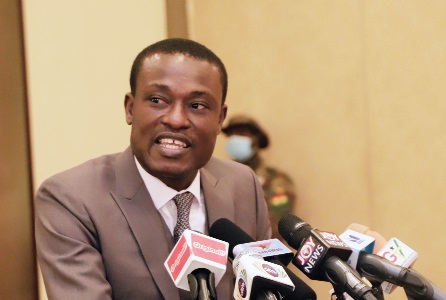The Office of the Special Prosecutor (OSP) has explained that its directive for suspects under investigation to declare their property and income is a lawful investigative procedure provided under the Office of the Special Prosecutor Regulations, 2018 (L.I. 2374).
This clarification follows reports that former Ghana Airports Company Limited Board Chairman, Paul Adom-Otchere, has filed a High Court application seeking to quash the OSP’s order for him to declare his assets and income.
In a detailed explainer posted on its official Facebook page on Tuesday, October 28, the OSP stated that under Regulation 20, a suspect may be subjected to a lifestyle audit, which requires the completion of Form 11B within 30 days.
The office emphasized that this declaration covers all property and income owned or controlled by the suspect, not just those suspected to be tainted.
The list of assets to be declared includes loans, cash in hand or at the bank, money held abroad, funds held by a spouse or partner, expected properties, and any assets disposed of within the past five years.
According to the OSP, the asset declaration serves as an investigative tool that allows the office to verify the financial standing and lifestyle of a suspect during an active corruption investigation.
It further warned that failure to comply with such a directive constitutes an offence, and any undeclared property later traced to the suspect is liable to automatic forfeiture to the state.
The OSP also clarified that its asset declaration process is different from the one filed with the Audit Service, which remains sealed and confidential, and distinct from asset freezing or seizure, which requires prior court approval.
Mr. Adom-Otchere, who is under investigation for alleged corruption in the award of a revenue assurance contract at the Ghana Airports Company to Evattex Limited, is challenging the directive in court.
His legal team, led by former Attorney-General Godfred Dame, argues that the order is unlawful and amounts to an abuse of power.
The OSP has, however, maintained that its directive falls squarely within its legal mandate and is essential to ensuring transparency and accountability in corruption-related investigations.




















